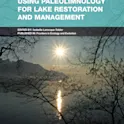
Health
03 Mar 2017
eBooks published in February 2017
Take a look at the Frontiers eBooks published in February 2017

Health
03 Mar 2017
Take a look at the Frontiers eBooks published in February 2017
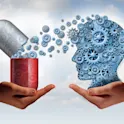
Health
01 Mar 2017
We are pleased to announce the launch of our brand new section Psychopharmacology in Frontiers in Psychiatry.

Health
24 Feb 2017
Improving the academic training of healthcare professionals in human nutrition is necessary to fight malnutrition

Health
01 Feb 2017
Scientists revise the typical use of male rats and point to sex-differences that can drastically change how we approach obesity in females.
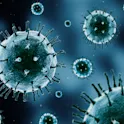
Health
10 Jan 2017
We are delighted to announce that Prof. Marc Struelens will be leading our new specialty section in Frontiers in Medicine and Frontiers in Public Health: Infectious Diseases – Surveillance, Prevention and Treatment. Given the intertwined nature of the public health and medical community when it comes to infectious diseases, we felt that a combined editorial board will best serve both communities to provide the highest quality peer review for our authors. A former president of the European Society for Clinical Microbiology and Infectious Diseases (ESCMID), Prof. Struelens is currently Chief Microbiologist at the European Centre for Disease Prevention and Control and Professor of Medical Microbiology at Universite Libre de Bruxelles. Prof. Struelens has extensive experience and publication record in microbiology, infectious diseases and public health. He has chaired the Belgian Infection Control Society and the European Study Group on Epidemiological Markers in addition to being a member of national and international advisory boards in the field of infectious diseases. Describing his vision for this specialty section, Prof. Struelens states: “I would like to provide a respected and interactive forum where medical researchers publish and contextualize research advances on determinants of human infections, at patient and population levels, and translate this knowledge into innovative […]

Health
04 Jan 2017
Scientists distinguish ‘overweight’ and ‘overfat’, the latter including normal-weight people with enough fat to impair health: Frontiers in Public Health
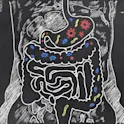
Health
22 Dec 2016
Extra vitamin D can restore good bacteria in the gut, according to a study in mice, giving hope in the fight against risk factors for diabetes and heart disease

Health
05 Dec 2016
Research suggests feedback loop between greater executive function and healthy behavior

Health
15 Nov 2016
By Emily Barker, Frontiers Science Writer Dr. Michel Goldman, Field Chief Editor of Frontiers in Medicine, recently founded at the Université libre de Bruxelles the Institute for Interdisciplinary Innovation in healthcare (I3h). Thanks to the Fund Baillet-Latour, the I3h Institute will launch in February 2017 an innovative educational project in translational medicine for students enrolled in different master programs related to healthcare including medicine, pharmacy, public health, but also economics, engineering, and law. The program includes lectures on the different aspects of the future of healthcare given by internationally recognized speakers, as well as case studies with active participation of students. “I think there have been exciting advances in the last few years, but people don’t realize that in order to bring new medicines to the patients you need more than scientific research,” explains Dr. Goldman. “It is not only about drugs. It’s also about medical devices and it’s about using big data, so it means that you have really to bring together different disciplines, and different expertises to translate the progress of research into new therapies for patients.” “The students themselves will have to work together across different disciplines to solve problems in healthcare;” he continues. The course will take […]

Health
11 Nov 2016
By Simon Watt, Science Writer We all know that feeling of suddenly needing to pee, and the agonizing worry that we might not find a toilet in time or make it that far. Sadly, for many people this is a regular occurrence and wetting themselves uncontrollably is an inevitable consequence. Almost 1 in 5 women over the age of 44 suffer from what is known as Urgency Urinary Incontinence (UUI): experiencing a strong sensation of an urgent need to pee, followed by immediate leakage of a large volume of urine. It can severely adversely affect someone’s life, contributing to anxiety, depression and social isolation. In spite of its impact, the causes of the complaint are still relatively unknown. The condition is often attributed to abnormal signalling prompting the bladder muscles to contract involuntarily, but this seems to account for only about three fifths of cases. Scientists are searching for other possible causes of the condition. Some think that understanding the bacteria that live within us may hold the key. The urinary tract has long been thought to be a sterile environment: a place where no bacteria can grow. A new study from Oregon Health and Science University that was published […]
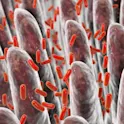
Health
10 Nov 2016
In a randomized double-blind trial, scientists show for the first time that dietary supplementation with daily dose of probiotic bacteria over a period of just 12 weeks is sufficient to yield a small but significant improvement in the cognitive performance of Alzheimer’s patients. For the first time, scientists have shown that probiotics — beneficial live bacteria and yeasts taken as dietary supplements — can improve cognitive function in humans. In a new clinical trial, scientists show that a daily dose of probiotic Lactobacillus and Bifidobacterium bacteria taken over a period of just 12 weeks is enough to yield a moderate but significant improvement in the score of elderly Alzheimer’s patients on the Mini-Mental State Examination (MMSE) scale, a standard measure of cognitive impairment. Probiotics are known to give partial protection against certain infectious diarrheas, irritable bowel syndrome, inflammatory bowel disease, eczema, allergies, colds, tooth decay, and periodontal disease. But scientists have long hypothesized that probiotics might also boost cognition, as there is continuous two-way communication between the intestinal microflora, the gastrointestinal tract, and the brain through the nervous system, the immune system, and hormones (along the so-called “microbiota-gut-brain axis”). In mice, probiotics have indeed been shown to improve learning and […]

Health
08 Nov 2016
By Freya Wilson, Frontiers Science Writer Medical breakthrough could save babies before birth A recent breakthrough has been made that could help to save babies lives from a syndrome that threatens their survival even before they are born. Alpha Thalassemia Major is a blood disorder inherited from both parents and often results in the death of babies. However, a new possibility for treatment has been found that ensures not only their survival to birth but also curing the syndrome while still in the womb. “One therapy that we’re developing right now is stem-cell transplantation for fetuses that have congenital disorders that affect the blood cells,” said Dr. Tippi Mackenzie, an Associate Professor of Surgery at the University of California, San Francisco. Mackenzie lab’s recent research looks at a hereditary disease that affects the blood cells known as Alpha Thalassemia Major. This disorder is often incompatible with life and consequently must be identified in utero. “When fetuses have this disorder, they inherit it from both of their parents. The fetus becomes anaemic and can die,” MacKenzie explained. “Alpha Thalassemia major can be fatal to fetuses if they don’t get blood transfusions before birth. And in many cases, the only way to […]

Health
31 Oct 2016
By Hedwig Ens, Frontiers The impact of our dietary choices on the global phosphorus footprint shouldn’t be neglected, recent research in Frontiers in Nutrition shows. A shift towards a plant-based diet may be an undervalued solution toward decreasing our environmental impact and attaining phosphorus sustainability. Phosphorus is an element essential for all living beings and is thus critical in food production. Mined phosphate rock is a non-renewable global resource that is nowadays becoming increasingly scarce which poses a severe problem to the farming industry: it needs phosphorus in the form of fertilizers to sustain crop productivity. Crops have two entries into the human food chain: direct consumption or indirect consumption by rearing animals which can be converted to human food. Different food types therefore require different amounts of phosphorus in their production. One kg of phosphorus can for example be used to either produce 3333 kg of starch roots (e.g. potatoes) or 16 kg of beef. The loss of phosphorus to waterways, whether from agricultural fields through runoff or urban sewage through human excreta, can cause severe water quality degradation. This leads to eutrophication, harmful algal blooms, and impairment of our drinking water, recreational areas, and fisheries. As the […]

Health
28 Oct 2016
Frontiers in Pediatrics is thrilled to announce Professor Barbara Ludwikowski (Auf Der Bult Children’Hospital, Hannover) as the new Specialty Chief Editor of the Pediatric Surgery section. In her career as clinical scientist, she has made important scientific contributions to the understanding of urological diseases and genital anomalies in children and infants. As Prof. Ludwikowski emphasizes: “One of the challenges in Pediatric Surgery is the inevitable development of ever more narrow subspecialty areas. While specialization is essential given the constant addition of new knowledge, new diagnostic, treatment modalities and surgical techniques, we should remember what Owen H Wangensteen wrote in his book about the state of general surgery after World War II.” “With the extension of surgery into many new areas since World War II and consequent fragmentation, a more important query confronting surgery today is, can we survive as a unified body? The answer would appear to be free communication between its many disciplines. Tight compartmentalization breeds sterility, the only hope is transpollination, the catalyst of life.” – Wangensteen O, Wangensteen S (1978). The Rise of Surgery. From Empiric Craft to Scientific Discipline. Minneapolis: University of Minnesota Press Describing her objective for the specialty section, Prof. Ludwikowski aims to […]

Health
07 Oct 2016
By Tania Fitzgeorge-Balfour, Frontiers Science Writer A person’s genetic risk for psychiatric disorders is related to his or her vulnerability to substance use and misuse There are many reports of drug use leading to mental health problems, and we all know of someone having a few too many drinks to cope with a bad day. Many people who are diagnosed with a mental health disorder indulge in drugs, and vice versa. As severity of both increase, problems arise and they become more difficult to treat. But why substance involvement and psychiatric disorders often co-occur is not well understood. In addition to environmental factors, such as stress and social relationships, a person’s genetic make-up can also contribute to their vulnerability to drug use and misuse as well as mental health problems. So could genetic risk for mental illness be linked to a person’s liability to use drugs? This question has been addressed in a new study, published in the open-access journal Frontiers in Genetics. “Our research shows that if someone is genetically predisposed towards having mental illness, they are also prone to use licit and illicit substances and develop problematic usage patterns,” says Caitlin E. Carey, a PhD student in the […]
Get the latest research updates, subscribe to our newsletter